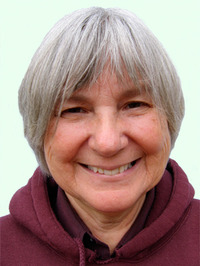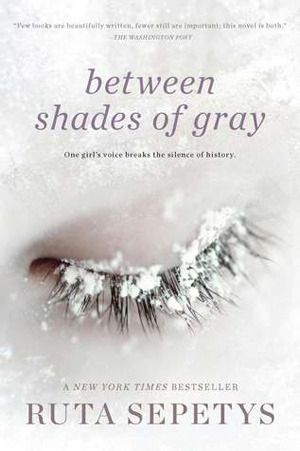From Ashes into Light is a transpersonal tale of epic tragedy, spirituality, family, and personal redemption. It is told through three distinct voices: the hauntingly tragic story of Ruth, a Jewish adolescent during Kristallnacht in Austria, Saqapaya, a stalwart Native American from coastal California during the time of the Spanish conquest, and Friede Mai.
Friede is born during World War II to a Bavarian soldier and a East-Prussian mother. As those around her struggle with the inevitable chaos and paradox of war, Friede opens her heart to gruesome enemies, at times saving herself and family members from atrocities.
With war behind them, the Mai family immigrates to the US, where Friede, her veteran father and ex-refugee mother, struggle with the reverberations of trauma. Friede is unable to find inner freedom until she meets her spiritual guide, a Rabbi, who helps her see that the voices from the past are teachers and the horrors of history are also beacons of light.
The three electric characters weave a narrative of raw consciousness, a moving example of transforming the ripple of suffering through the incredible strength of vulnerability.
November 10, 1938, Kristallnacht, night of shattered glass, broken bodies and broken faith. We are propelled into a chaotic world. Our Salzburg home has been torn apart.
I stare at drawers emptied on the floor, papers thrown about, clothes everywhere and my 12-year-old mind cannot comprehend.
“Papa, where are Oma Gutherz and Onkel David? Did they go to the doctor? When will they be back? Who made this mess?”
We have just returned from visiting Stefan and Anna Richert, and Papa wants to go back to the Richerts and make inquiries. Mother nearly yells, “Josef, they should be taken away? An old woman taking care of her son sick in bed? This I cannot believe.”
“Esther, believe it. Haven’t we been trying to convince you, Stefan and I? The Nazis have no mercy. We are lost.”
The pain in my father’s voice shocks me. I think, how can Papa say lost? Grandmother Gutherz and Uncle David must be somewhere.
“What are we going to do? Josef, we have to do something!” Mother stands in the midst of our ransacked apartment. Forgetting danger, she begins to cry loudly.
“Quiet. Please, be quiet,” Papa whispers. Mother chokes back sound. “What do you think we can do, Esther? Don’t you understand what’s been happening since the Nazis took control?”
Before returning to the Richerts’, Papa warns, “Keep it dark, stay still, don’t open the door.” He points to an overturned lamp and pictures from the walls smashed on the floor in a pile of splintered glass. “The place has been well gone over. It’s unlikely anyone will be back here tonight.”
Mother and I huddle on the divan, afraid to talk. I hug my knees tightly. Forehead presses bone. Mother makes suppressed noises, and her thick body heaves. How can I help? What can I say?
When Papa returns, he whispers, “Stefan went to the Gestapo. He said he wanted to report breaking and entering and destruction of property. The Gestapo told him they already knew and not to bother about it. To cover himself, he pretended to be pleased saying. ‘Good, good, they got what they deserved.’ Then, he heard someone give an order to send a telegram to Vienna about ‘Salzburger Jews taken in protective custody.’ Stefan thinks Vienna is their immediate destination, but someone else told him that those arrested would eventually be sent to a camp in Germany near Munich. He and I agree. We need to leave as soon as possible. He will take care of the business and send us money.”
We wear extra clothes, bring food and a few valuables that hadn’t been found. We walk inside dark pockets of night, hiding in the shadows of tall buildings. We peer in every direction as we hurry over cobblestones and past street lamps that glare down from building fronts. At the plaza, I linger by the bronze horses that rear up from the fountain’s base. I have always loved the one on the right with his back to the cathedral. His forelegs kick above the water, head pointing up, mouth open as though about to make a loud, defiant noise.
I reach into the pool, trail fingers in the water, touch a smooth leg. “Goodbye, be brave,” I whisper, echoing the words of my classmate, Rolf, who told me more than once, “Ruth, be brave.” Mother grabs my arm.
“It’s not safe,” she says.
We arrive at the edge of town where Stefan Richert leads us inside the back of one of our Gutherz trucks, loaded for Vienna deliveries. He directs us to the right of a dresser, beyond tables and chairs and behind a bookcase. Mr. Richert has taken over our family’s furniture business because of the Nazi requirement that all Salzburger enterprises be judenrein, free of Jews. Jews are no longer allowed to own businesses.
“You know the work and the customers,” Papa had said to his friend and partner as they shook hands over the change of ownership. “You are an honorable person who will carry on the business with its tradition of quality now that my family and I have become one of the displaced.”
We conceal ourselves in the space Mr. Richert created at the back of the truck bed. He will drive us to Papa’s sister’s house in Vienna himself. Will we ever see him again, I wonder, after tonight?
Gudrun Mouw was born in East Prussia (formerly part of Germany) in 1944. At the age of 7, she arrived in the United States as a displaced person. Mouw moved many times in the US before ending up in California in the 60s. There she studied at San Jose State University, receiving her Master’s Degree in English Literature in 1969. Mouw has worked as a college English teacher, a Stanford librarian, a columnist, a California poet-in-the-school, as well as a yoga and meditation teacher. She lives in Santa Barbara County, California and has for over thirty years.
Mouw wrote From Ashes Into Light beginning with a research trip to various locations in Eastern Europe, Germany, Austria and Switzerland (in the 1990s). Her research took her places like Dachau, the concentration camp, a Jewish graveyard in Prague, and the streets of Salzburg.
Mouw is a prolific and award-winning poet and her poems have appeared in literary journals such as Praire Schooner, Practical Mystic, The Chariton Review and others. Her collection of poetry called Wife of the House was published in April 2014. Mouw won first place in a short fiction contest at the Santa Barbara Writer’s Conference in 1992. From Ashes into Light will be her first published novel.












.jpg)